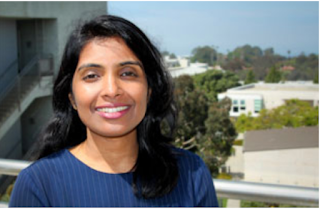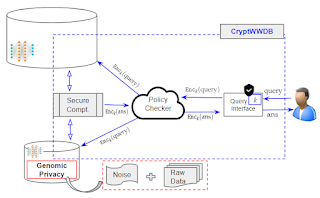Indiana University's Chenghong Wang is presenting the talk,
Towards Practical Confidential High-Performance Computing, on Monday June 23rd at
10am, Central time.Please register here.
The democratization of high-performance computing (HPC)—driven by a paradigm shift toward cloud-based solutions—has unlocked unprecedented scalability in data sharing, interdisciplinary collaboration, and large-scale analytics. Yet, despite these advancements, the lack of strong privacy protection mechanisms, particularly for sensitive or regulated data, remains a significant barrier preventing critical domains from fully leveraging cloud HPC. In this webinar, I will present our group’s research toward enabling a practical confidential HPC paradigm—one that empowers HPC providers to securely process sensitive workloads with provable security and privacy guarantees.
My talk will be structured around three key pillars that underpin our approach: practical data-in-use security, data governance and compliance, and usability. First, I will introduce our vision for a next-generation trusted execution environment (TEE) architecture tailored for HPC—designed to deliver HPC-grade efficiency for large-scale, parallel workloads, while upholding strict data-in-use security guarantees. Second, I will discuss how we leverage formal methods to validate compliance with complex governance and data-sharing policies—ensuring that even dynamic, multi-party workloads can remain policy-aligned. Finally, I will share our ongoing work in developing new usability frameworks and programming abstractions designed to make confidential computing accessible to domain scientists—lowering the barrier for adoption without requiring expertise in cryptography or secure systems.
Speaker Bio:
Chenghong Wang is an Assistant Professor in the Luddy School of Informatics, Computing, and Engineering at Indiana University Bloomington. He is a core faculty member of the Security and Privacy in Informatics, Computing, and Engineering (SPICE) group and affiliated with the NSF Center for Distributed Confidential Computing (CDCC). His research focuses on building
full-stack solutions for privacy-preserving data sharing and analytics (PPDSA), bridging theory, systems, and architectural design. His work spans trusted execution environments, differential privacy, applied cryptography, and secure data systems. Dr. Wang's research has been published in premier venues across systems, security, and AI, including SIGMOD, VLDB, USENIX Security, MICRO, NeurIPS, IJCAI, ICCV, and EMNLP. Beyond his core focus, he actively collaborates across disciplines, contributing to projects in AI, machine learning, hardware systems, healthcare, and biomedicine. He received his Ph.D. in Computer Science from Duke University, where he was advised by Prof. Ashwin Machanavajjhala and Prof. Kartik Nayak.
---
Join Trusted CI's announcements mailing list for information about upcoming events. To submit topics or requests to present, see our call for presentations. Archived presentations are available on our site under "Past Events."






















